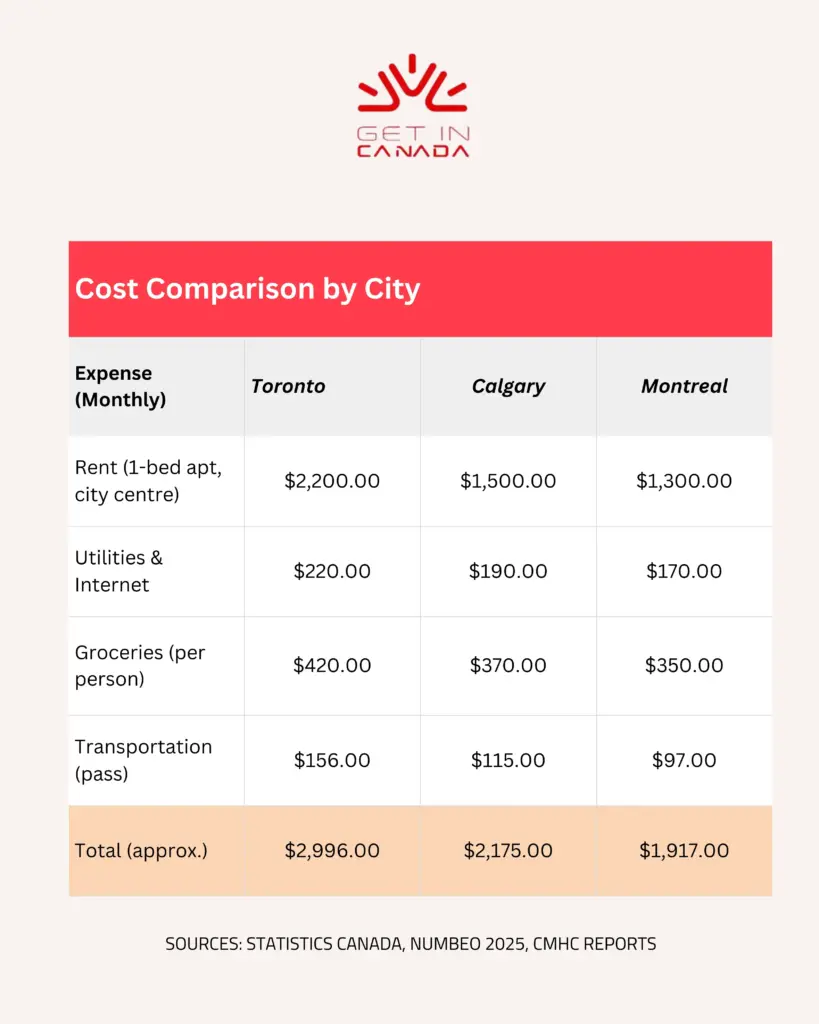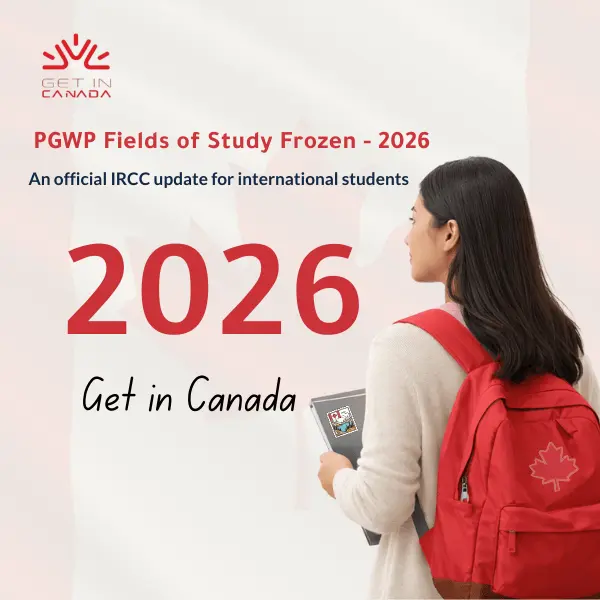Settlement in Canada: How to Settle in Canada After You Arrive
Starting a new life in Canada is exciting, but it can also feel overwhelming at first. From learning about the cost of living to finding your first community connections, every newcomer faces the challenge of turning a fresh start into a real home. The good news? With the right steps and resources, settling in Canada can be smoother than you think.
This guide is designed to help newcomers; especially immigrants from Arab countries and beyond understanding the key aspects of settlement. We’ll walk through what to do after arrival, how to manage your expenses, and where to find the support you need. By the end, you’ll feel prepared to embrace your Canadian journey with confidence.
1. First Things to Do After Arrival
The first few weeks in Canada are crucial. To settle successfully, there are a few must-do steps every newcomer should prioritize.
Checklist: Immediate Tasks for Newcomers to Settle in Canada
- Apply for your Social Insurance Number (SIN).
- Register for provincial health care.
- Open a bank account.
- Get a local phone number.
- Start your job search or connect with employment services.
- Find temporary or permanent housing.
Pro Tip: Keep all your important documents (passport, visa papers, landing papers) in a safe, easy-to-access folder. You’ll need them often in your first weeks.
Read More: Newcomer’s Guide to Canada Immigration
Book Your Consultation Session →
2. Canada Living Cost and Expenses
One of the biggest questions newcomers ask is: “How much will it really cost me to live in Canada?” Understanding this early helps you plan your budget and avoid financial stress.
Living costs vary by city and lifestyle. Toronto and Vancouver are among the most expensive, while Calgary, Ottawa, and Montreal are generally more affordable.
Breaking Down the Basics
- Housing: Rent is usually your biggest monthly expense. Downtown Toronto apartments can cost $2,000–$2,300/month, while in Montreal you may find similar apartments for $1,200–$1,400.
- Utilities & Internet: Around $150–$250/month depending on the province.
- Groceries: Expect $300–$450/month per person. Families spend more.
- Transportation: A monthly transit pass ranges from $100–$160.
- Healthcare & Insurance: Basic coverage is free with your provincial health plan, but extras like dental or prescriptions need private insurance.

Read Also: Affordable Housing in Canada
3. Accessing Settlement Service Providers
Canada offers a wide range of settlement services to support newcomers. These organizations provide free or low-cost assistance in areas like language training, job search, and housing.
Examples of Settlement Services:
- Language classes (ESL/FSL)
- Resume and job interview workshops
- Guidance on housing and healthcare
- Newcomer orientation sessions
Many of these services are funded by the Canadian government, so they’re free for permanent residents and refugees.
Book Your Consultation Session →
4. Building Community Connections
Settling in Canada isn’t just about work or study, it’s about creating a sense of belonging. You can build strong community ties through local centres and libraries, sports and social clubs, places of worship, volunteering, and even your child’s school. These connections not only help you meet people but also make your new city feel like home.
4.1 Community Centres, Recreation Centres, and Libraries
Settling into a new country isn’t only about paperwork and budgets — it’s also about finding places where you feel welcome. In Canada, community hubs like centres, recreation complexes, and libraries play a huge role in helping newcomers adjust.
Why They Matter
- Community Centres: These often serve as gathering spots where newcomers can meet others, attend orientation sessions, and participate in cultural celebrations. Many even host newcomer welcome programs that walk you through local services.
- Recreation Centres: Beyond fitness and sports, they’re a great way to connect socially. Skating lessons in winter, swimming pools, and yoga classes are just a few examples that bring people together.
- Libraries: Canadian libraries are more than book-lending spaces. They offer free Wi-Fi, computer access, language learning tools, and even job search workshops.
Example: Many libraries in Toronto and Vancouver run “Conversation Circles” which are informal gatherings where newcomers can practice English or French with volunteers.
4.2 Sports Teams, Associations, and Social Clubs
Getting active in local clubs is one of the quickest ways to feel integrated in Canadian life.
Sports for Every Season
- Winter: Hockey, curling, and skiing dominate a great way to experience Canadian culture firsthand.
- Summer: Soccer, cricket, and basketball leagues flourish in community parks.
Joining a sports team isn’t just about fitness; it’s a way to form friendships that often last a lifetime.
Cultural and Professional Associations
Many cities have Arab, South Asian, and African community associations that help immigrants stay connected to their roots while building new networks. Professional associations also offer events, workshops, and mentorship opportunities to help newcomers advance their careers.
Pro Tip: Search local city websites or platforms like Meetup to find groups that fit your interest.
4.3 Places of Worship
For many newcomers, spiritual and cultural belonging is just as important as housing or work. Canada’s diversity ensures that places of worship are accessible across most cities.
More Than Spiritual Spaces
Mosques, churches, temples, and synagogues often double as community centres, offering:
- Free meals and food banks for those in need
- Family counselling or support groups
- Cultural and holiday celebrations that bring communities together
- Youth and children’s programs to help kids adapt socially
Example: In Ottawa, several mosques organize free weekly language classes and networking events for new immigrants.
By engaging with these spaces, newcomers often find trusted mentors and a sense of belonging.
4.4 Your Neighbourhood
Exploring your neighbourhood is a simple but powerful way to feel grounded in your new environment.
How to Get Started
- Locate Essentials: Find your nearest grocery store, pharmacy, and medical clinic. These are daily anchors that reduce stress.
- Learn the Transit Routes: Understanding bus or metro schedules helps you feel independent quickly.
- Discover Green Spaces: Canada is rich with parks, playgrounds, and trails. These become great spots for family time and making casual connections with neighbours.
Social Connection in Neighbourhoods
Many Canadians value neighbourhood spirit. Watch for local bulletin boards, Facebook groups, or WhatsApp communities where residents share updates about events, lost-and-found items, and even job postings.
Pro Tip: Attend a neighbourhood event; like a street festival or farmers’ market to meet people casually and build your sense of home.
4.5 Your Child’s School
Education is a top priority for most immigrant families, and Canada is known for its strong school system. Still, every parent should understand how schools work to support their child’s success.
Key Features of Canadian Schools
- Free Public Education: For children ages 6–18, funded through taxes.
- French and English Programs: Depending on the province, you may choose French immersion to help your child become bilingual.
- Extracurricular Activities: Sports, arts, and clubs help children adapt and build friendships quickly.
- Support for Newcomers: Many schools offer settlement workers or ESL (English as a Second Language) teachers who help children catch up.
Getting Involved as a Parent
Parent engagement is highly encouraged in Canada. Schools hold parent-teacher meetings and often ask parents to volunteer during events or school trips. This builds trust and strengthens your child’s academic journey.
Example: In Ontario, the “Settlement Workers in Schools” (SWIS) program assigns specialists to help newcomer families navigate everything from report cards to school bus schedules.
4.6 Volunteering
If there’s one activity that combines personal growth, career development, and community connection — it’s volunteering.
Why Volunteering is a Game-Changer
- Canadian Experience: Employers often look for Canadian experience. Volunteering is a respected way to gain it.
- Language Practice: Volunteering in a public setting helps you practice English or French in real conversations.
- Networking: Many people find jobs through connections they make while volunteering.
- Sense of Belonging: Giving back builds pride and integrates you into Canadian society.
Popular Volunteer Opportunities
- Food banks and shelters
- Hospitals and senior care homes
- Cultural festivals and local events
- Libraries and schools
Pro Tip: Platforms like Volunteer Canada and local city websites list available opportunities year-round.
Book Your Consultation Session →
Conclusion: Your Path to a New Life in Canad
Settling in Canada takes patience, planning, and the willingness to connect with new people. From managing your living expenses to finding your local library or sports team, every step brings you closer to feeling at home.
Remember: you’re not alone. Countless services, communities, and people are ready to help you succeed. And if you want expert guidance on immigration and settlement, Get In Canada is here to support your journey every step of the way.











